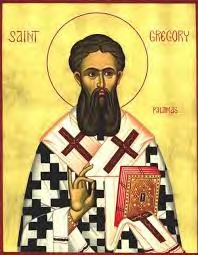 Although I realize that this article, which deals with the “mystery and wonder of the Trinity” as expressed by the debates of the Fathers of the Church, may be difficult to follow and understand, I think it is valuable. What I think it does is document the thinking of the Church as she came to understand God as Three-In-One – as a Trinity of Persons. In order to come to this understanding, there were many very important issues that had to be dealt with. As you probably know, the Trinity is not overtly dealt with in the New Testament. The early Church did not have a clear understanding of the belief in the Trinity. It took more than 300 years and, obviously, the challenge of heresy to make the Church deal with Who God Is, based on Who she believes Jesus is. Truly, the development of the idea of God as Three-In-One came about as the Church attempted to understand Who Jesus Is. If He truly is God incarnate, somehow, in order to preserve the understanding of God as One and beyond nature, there must be a second Person, the Son. Then to believe that God, in the Person of the Son became human, there must be a Person that represents the Power of God who brought that all about. Thus, the Fathers began to develop the idea of the Trinity.
Although I realize that this article, which deals with the “mystery and wonder of the Trinity” as expressed by the debates of the Fathers of the Church, may be difficult to follow and understand, I think it is valuable. What I think it does is document the thinking of the Church as she came to understand God as Three-In-One – as a Trinity of Persons. In order to come to this understanding, there were many very important issues that had to be dealt with. As you probably know, the Trinity is not overtly dealt with in the New Testament. The early Church did not have a clear understanding of the belief in the Trinity. It took more than 300 years and, obviously, the challenge of heresy to make the Church deal with Who God Is, based on Who she believes Jesus is. Truly, the development of the idea of God as Three-In-One came about as the Church attempted to understand Who Jesus Is. If He truly is God incarnate, somehow, in order to preserve the understanding of God as One and beyond nature, there must be a second Person, the Son. Then to believe that God, in the Person of the Son became human, there must be a Person that represents the Power of God who brought that all about. Thus, the Fathers began to develop the idea of the Trinity.
In doing this, however, they had to deal with a number of questions. First, if there are three Persons in the One God, have they all been in existence for all eternity? Second, what is the relationship between the Three Persons?
Gregory rebukes the tendency in all of us to reject that which we cannot understand or comprehend. Gregory’s theological opponents insist, for instance, that the Son could not be “begotten,” because such a generation fits no reasonable categories. Part of the problem, Gregory responds, is that the model these various theologians use to picture the divine generation is itself faulty.
First, Gregory advises, “cast away your notions of flow and divisions and sections, and your conceptions of immaterial as if it were material birth, and then you may perhaps worthily conceive of the divine generation.”
So what Gregory says is that we should not impose on the idea of God those things that we know as humans. God is different. Divine generation is different from human generation.
